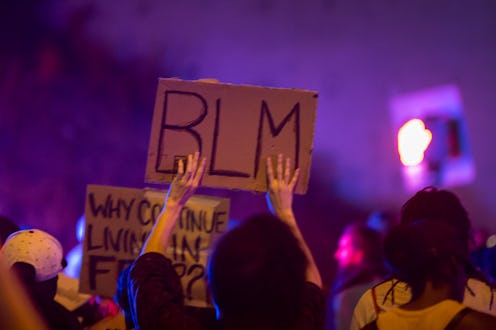Life
The Step Forward Campaign Could Make A Difference
A new education initiative aimed at addressing and decreasing the normalization of sexual violence against young women of color, particularly in schools and on campuses, has just been launched in Los Angeles. The Step Forward curriculum combines the real-life experiences of young American women of color with shockingly bleak sexual violence statistics, to create a relatable and accessible set of classroom lessons that are based on a peer education model. By encouraging young people to readdress their internalized misogyny at a young age and elevate the voices of female peers, Step Forward draws attention to the way in which sex trafficking, sexual assault and sexual harassment (in the street, school, or home), can devastate their lives and impact their communities — and what we can do to address the problem.
The campaign was borne of Get Smart B4 U Get Sexy, a sex education program created by the organization Black Women for Wellness that provides prevention and intervention resources for ethnic minority youths aged 12 to 30 who are at high risk for sexual infections and violence. (Bustle has reached out to Black Women for Wellness for comment.) The group particularly focuses their efforts on "incorporating the impacts of hyper-sexualization, rape culture, gendered and state violence on the reproductive health status of African American & Black communities in Los Angeles County as well statewide." You can watch one of the stories from a girl at Gardena High School in L.A. as part of the Step Forward campaign below:
Statistics affirm the necessity of Step Forward. According to the AAUW report Hostile Hallways: Bullying, Teasing, and Sexual Harassment in Schools, 67 percent of black girls have reported being “touched, grabbed or pinched in a sexual way.” Meanwhile, 40 percent of black women report that they have had “coercive contact of a sexual nature” by 18 years old, according to the Women of Color Network. Ebony also reports that In Los Angeles County, black girls have the highest rates of domestic sex trafficking victimization — which also means they're more likely to be locked up for “child prostitution” instead of being recognized as victims of rape than their non-black counterparts.
Step Forward is so important because all too often, black women are forced to fight a constant and arduous battle to be heard, finding often that they are erased entirely from the conversations surrounding black civil rights or sexual violence taking place in our society. Think, for example, of the widespread media silence surrounding the Daniel Holtzclaw case. (In 2015, Holtzclaw was charged with 36 counts of alleged sexual violence, many of which were against lower income women of color; on Dec. 10, 2015, he was convicted of 18 counts, and on Jan. 21, 2016, he was sentenced to 263 years in prison.) Or think of the social media campaign that started following Sandra Bland's death in 2015. Unfortunately there are so many other marginalized black women who have died in similar circumstances, and who are now referenced only collectively through social media campaigns like #SayHerName — which, ironically, was begun in order to draw attention to their individual stories.
How effective Step Forward will be isn't yet known; we'll have to see how it goes before we can say. But by partnering with schools and working with members of the black community, perhaps it will go some way in creating a safe space for women to speak up about issues of sexual violence which affect them.
Image: Getty Images
